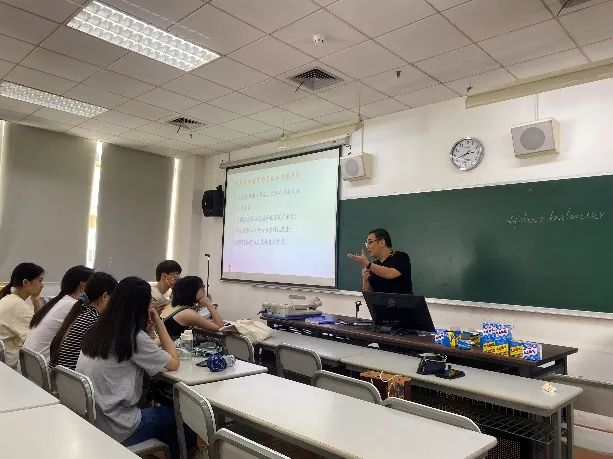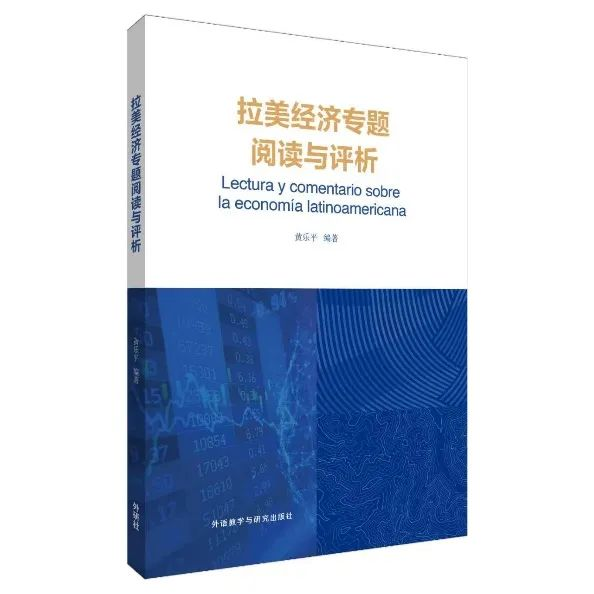On June 22, 2022, Mr. Yun Wenjie from the China Center for Special Economic Zone Research (CCSEZR), Shenzhen University (SZU), shared his thoughts and judgments on Russia-Ukraine relations with teachers and students of the Spanish language major in the interdisciplinary course on "Economic Development in Contemporary Latin America" for the class of 2019 at SZU.
The lecture is themed “A Brief Analysis on the Impact of the Russia-Ukraine War on China's Geopolitical Security”. It consists of four parts: the direct and indirect causes of the outbreak of the Russia-Ukraine war, the impact of the war, the current geopolitical security challenges and opportunities faced by China, and China's coping strategies.
1
Lecture Review

Mr. Yun believed that the direct cause behind the Russia-Ukraine war was that the United States needed to launch a controllable regional conflict with the help of an “offshore balancing”, so as to transfer its domestic political, economic and social crises elsewhere. The Russia-Ukraine war, which could have been avoided, finally broke out after the continuous eastward expansion of the U.S.-led NATO. The war was brewing against the backdrop of a growing disintegration of the global economic system and value chain established under the leadership of the United States since the 1990s. Meanwhile, America's global hegemony is constantly being shaken, and the world order is undergoing reconstruction. China's rise has also shifted the balance of power between the East and the West. However, the desire for national revival for the Russian and Slavic peoples has to be demonstrated through war.
Mr. Yun pointed out that the repercussions brought by the Russia-Ukraine war are multifaceted. First, it disrupted the political balance in Europe, challenging NATO and the EU; second, Russia is seeking to revive again the Slavic nation by uniting and unifying it by force; third, the U.S. strategy to contain China is being held back, and the Pax Americana it built during the Cold War era is falling apart; finally, the world order will be reshaped and a new cold war may begin.
The top priority China needs to consider in the face of this war is the geopolitical security challenge we are confronting. The dissolution of rationality and science by Western postmodernism inflames populism, racism and the clash of civilizations. Political thoughts based on these theories, therefore, dominated the political circles in Europe and the United States. From the perspective of geopolitical security, America's Indo-Pacific strategy and its economic framework, NATO's attempt to expand into the Asia-Pacific region, the escalating Taiwan question, North Korea issue and the South China Sea issue are all challenges that China needs to address seriously. Meanwhile, China is also embracing a new round of opportunities: the Sino-Russian strategic partnership and the increasingly stronger ties between Central, South and Southeast Asian countries and China mark a new development direction. China should include global energy, markets and trade routes security in its security strategy.
What countermeasures can China take in response to the crisis? According to Mr. Yun, it’s even more important to set up a new dual security system of "naval defense" and "frontier defense". To achieve this goal, China is embarking on the "Belt and Road Initiative" regional cooperation and global deployment policies. The “dual circulation" of China's economic strategy and large market plan also reflect that China is tapping into its huge economic potential and market appeal to unveil new poles of economic growth, regional industry and value system in the post-COVID-19 era.
Academic ideals should be put into practice, which is well demonstrated by Mr. Yun Wenjie's lecture.
2
Course Introduction

“Economic Development in Contemporary Latin America” is an optional course for Spanish majors in the College of Foreign Languages, SZU, taught by Mr. Huang Leping and offered to third-year undergraduates. In 2021, the course was approved by the Interdisciplinary Curriculum Development Program of SZU, in cooperation with CCSEZR. The course features teaching content of in-depth integration of multidisciplinary, covering Spanish, world economics, international relations and other subjects. It enables students to understand the current economic development of Latin America, the main target region of Spanish, while learning the language. It also inspires students to think about the logical relationship between economic phenomena and historical events, as well as the relationship between Latin American economy and world economy, international relations and international politics, and deliberate on the development of world economics since World War II from the perspective of Latin American economy, aiming to cultivate versatile professionals that master foreign languages, and serving the country's strategies of “Going Global”, “The Belt and Road Initiative”, and “A Community of A Shared Future for Mankind”.
3 Expert Profile
Mr. Yun Wenjie is a distinguished researcher of CCSEZR, a key research base of humanities and social sciences of the Ministry of Education , overseas Ph.D. supervisor, and master supervisor; distinguished researcher of the Center for Indian Studies of Shenzhen University, a research center for international and regional studies of the Ministry of Education, and teacher of the Belt and Road Research Institute of SZU; the executive chief editor of the Belt & Road Studies; he specializes in economic history, history of international relations, history of Sino-foreign exchanges, regional studies of Central and South Asia and studies on world special economic zones; he has published many historical materials including the monograph Project Red Dragon - China: Study on Historical Materials of the North American Revolution in the Late Qing Dynasty, A Co-edited Collection of Yung Wing’s Paper in the U.S., A Collection of Yung Wing’s Paper in the U.S., A Cycle of Cathay and The Great Wall of China as well as other Western Sinology works. He also published many academic papers. Currently, he is researching geopolitical and geo-economic issues in Central and South Asia, a research supported by the National Social Science Fund of China and the Central Ministry and Commission, and is engaged in promoting economic and cultural exchanges and cooperation between China and countries along the Belt and Road.
This article is reproduced from “Liyuan Xixie”

